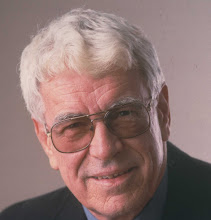 In the pearly light of an August morning, Queen Charlotte putters across the calm waters of Point Judith Pond, her Perkins diesel rumbling below the wheelhouse. Queen Charlotte is a husky 34-foot Fisher motorsailer skippered by John Pratt and crewed by his daughter Liz, his son Ben, and me. Bound from Bridgeport, Connecticut, to Halifax, we have spent the night in this idyllic waterway which meanders four miles into the low Rhode Island landscape.
In the pearly light of an August morning, Queen Charlotte putters across the calm waters of Point Judith Pond, her Perkins diesel rumbling below the wheelhouse. Queen Charlotte is a husky 34-foot Fisher motorsailer skippered by John Pratt and crewed by his daughter Liz, his son Ben, and me. Bound from Bridgeport, Connecticut, to Halifax, we have spent the night in this idyllic waterway which meanders four miles into the low Rhode Island landscape.As we turn behind two wooded islets, a family of swans scatters before us. The young ones take off, and soon the mother follows, her broad wings heaving her heavy white body into the air.
“I wonder what swan tastes like,” says the skipper pensively.
“What?”
“I'm sure someone, somewhere, has eaten swan. I wonder what it tastes like.”
The idea cracks me up – not the idea of eating swan, but the idea of viewing the world through one's stomach. John is a foodie, whose mind never strays far from contemplation of the next meal.
Queen Charlotte slips between the villages of Galilee and Jerusalem, which flank the pond's narrow entrance, their wharves crowded with steel draggers. We emerge into the Point Judith Harbor of Refuge, an artificial lagoon formed by a V-shaped structure of enormous rock breakwaters, built in 1914 for the coasting trade.
Outside the breakwaters, Queen Charlotte rolls heavily in a sloppy sea with very little wind. Dodging some fishing boats, we raise the mizzen and roll out the jib to ease the motion. The boat lopes northeast towards Buzzard's Bay, the coastline lost in the mist. Two hours pass. Three hours.
And then the engine stops.
The only thing that normally stops a diesel is lack of fuel. The fuel filter is probably plugged. While the boat rolls erratically, John replaces the filter. That leaves the fuel lines full of air, which we have to force out by pumping fuel in. John tries three different pumps. But no air bubbles appear.
“Is it possible that there's no fuel in the tank?” I ask. John grabs a stick and taps the tank. Boing! The tank is empty.
All right. A gentle breeze has come up. Up go the mainsail and the inner jib, and Queen Charlotte sails into the mouth of Buzzards Bay, the light wind giving her a surprising five knots.
“I filled the tank last fall before I laid her up,” says John, puzzled. “Ninety gallons. We've run about 20 hours, and she uses a gallon an hour. So there should be about 70 gallons in the tank. It must have been stolen while she was laid up in Bridgeport.”
He calls TowBoatUS. Their nearest base is in New Bedford, Massachusetts, about 10 miles away. To minimize the cost of towing, the towboat skipper suggests that we sail to the harbour approaches, and then he'll bring us in.
Fine. The wind is blowing straight up the bay, giving us an easy reach to New Bedford. The sun is warm, the sky clear. We have the demountable tiller fitted in the cockpit, so we can steer from outside, watching the sails. It's a glorious afternoon.
“Should we be concerned about those black clouds over there?” says Ben, pointing to a greasy roll of smutch on the horizon.
“Nah,” I reply. “I don't think it's coming our way, and if it does, it'll probably blow straight over.”
Whoops. Dead wrong. The light breeze dies, the black roll advances, and when it reaches us the wind hits like a wall. Queen Charlotte's 14-ton mass heels far over. As John and Ben quickly furl the genoa, the boat straightens up and starts to sail. The sea is already carved and fretted. The anemometer shows the wind at 20 knots, gusting to 25 – and it's coming straight from New Bedford.
Motorsailers aren't designed for windward sailing. They normally sail downwind, and motor upwind. But we have no choice. Hunkered down with her lee decks awash, spray flying over her, Queen Charlotte settles into a long, slow slog to windward. Tacking back and forth through the eye of the wind, she doggedly nibbles up the remaining miles to New Bedford.
At dusk, as we approach the harbour mouth, the wind slackens. With her running lights on, the towboat emerges from what looks like a solid wall blocking the entrance – a hurricane barrier, the first one I've ever seen. The towboat skipper passes us a hefty line and pulls us through the gate to a mooring. He hands over 10 gallons of diesel, and John pours it in the tank.
“We'll try the engine in the morning,” he says. “Right now I want some rum, and some food.”
I wonder what he wants to eat. Swan under glass, I suspect.
-- 30 --

No comments:
Post a Comment